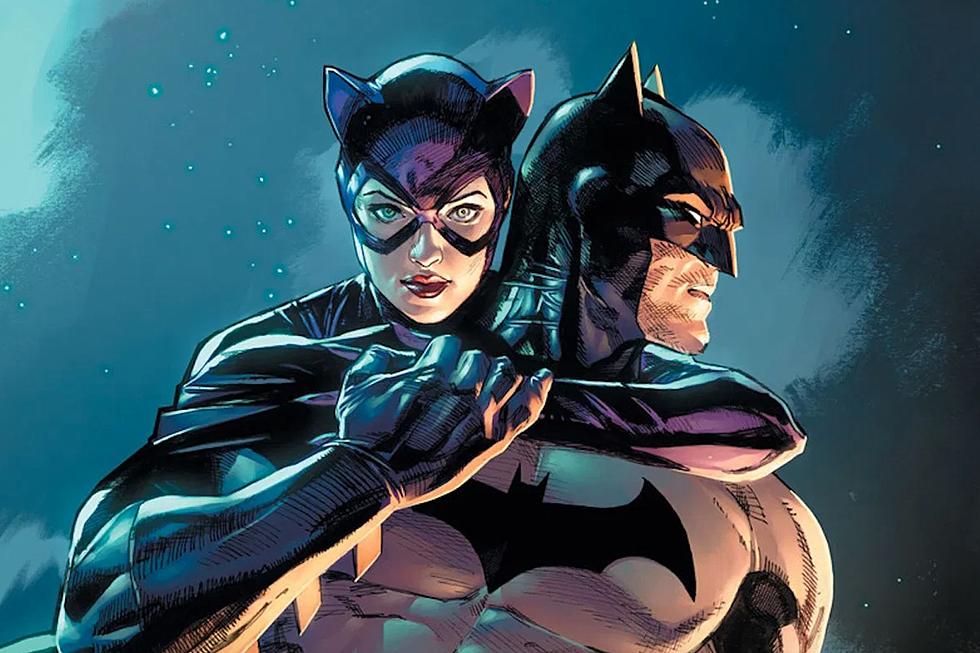The Arkham Sessions: The Psychology of The Joker & Harley, Electroshock, And Suicide Squadding
The Arkham Sessions is dedicated to the psychology of Batman, so it seems almost like an ethical duty to cover a movie about Arkham Asylum, Gotham City's mental health facility for the "criminally insane." In the newly released direct-to-video animated film Batman: Assault on Arkham, a highly-skilled group of assassins and outlaws are called together by Amanda Waller to take part in a risky -- possibly life-threatening -- mission to infiltrate Arkham Asylum.
Does it help or hurt that members have a history of incarceration, criminal activity, and psychiatric treatment related to lack of moral sense? Perhaps Waller is brilliant to devise a plan that can only succeed via the knowledge and insight of persons who have been through the system.
In this episode of The Arkham Sessions, we gently put aside the VHS and screen a contemporary work from DC Universe Animated. Use the player above to listen to our spoiler-free analysis of Harley Quinn, Deadshot, Captain Boomerang, King Shark, Black Spider, Killer Frost, and, of course The Joker.
Can a group like the Suicide Squad really work together effectively?
In the '50s and '60s, in part due to an increased political awareness, psychologists were interested in understanding social issues such as conformity, cohesiveness, and intergroup conflict. One of the most famous studies from that era is known as Robbers Cave, a social experiment involving two groups of elementary school boys at a camp in a densely wooded area of Oklahoma. Although the idea seems intuitive now, the study showed that the two groups of adolescents -- nicknamed the Eagles and the Rattlers -- were relentlessly competitive with each other until a "third" enemy was introduced. The study proved that even the strongest animosity between people can be mellowed when a common goal is introduced.
Assault on Arkham tinkers with the idea of group conflict and resolution when members who were previously at odds with each other (e.g., Deadshot and Captain Boomerang) work together toward a common goal.
Harley Quinn and The Joker: Risk-takers and romantic relationships
When the Suicide Squad is formed, Harley is initially seen as a liability because of her romantic history with the Joker, who is currently incarcerated in Arkham. Throughout the film, the Joker alludes to their abusive relationship and callously mentions previous incidents in which he's physically assaulted Harley. We discuss this unhealthy couple and how both individuals have aspects of destructive, anti-social personality features. Assault on Arkham portrays a realistic, though extreme version of intimate partner violence that reminds us how volatile and unhealthy this personality pairing can become.
Electroshock Therapy: Yup, still a thing
Many people are often surprised to hear that Electroshock Therapy (now called Electroconvulsive Therapy) is still being practiced. In the film Assault on Arkham, the Riddler gives a demonstration of the procedure in the medical unit of the asylum. His explanation that the treatment essentially creates a seizure is not incorrect: Electroconvulsive Therapy (ECT) is a treatment that involves passing an electrical current through the brain while the patient is under general anesthesia. By "turning down" overactive neural connections and "re-setting" wirings, the treatment can be very effective in helping patients who have depression, bipolar disorder, or other mood disorders. Clearly, this intervention is more invasive and poses more risks (mild to profound memory loss) than anti-depressants and psychotherapy.
Assault on Arkham depicts a more brutal version of ECT; the BBC article, "Why are we still using Electroconvulsive Therapy?" provides images and explanations of the more humane practice used today.
Listen to the episode for our full description of this controversial treatment.
More episodes of The Arkham Sessions can be found on iTunes as well as on Under The Mask. Dr. Drea can be found Twitter at @ArkhamAsylumDoc. Brian can be found at @Bward028. The Arkham Sessions’ official Twitter feed is @ArkhamSessions.
More From ComicsAlliance


![How Conner And Palmiotti Reinvigorated Harley And Reimagined ‘The Jetsons’ [Interview]](http://townsquare.media/site/622/files/2017/03/Harley-Featured.png?w=980&q=75)
![Square Enix Shows Off Even More Amazing Alternate Marvel and DC Characters [Toy Fair 2017]](http://townsquare.media/site/622/files/2017/02/IMG_2545.jpg?w=980&q=75)
![DC Collectibles Shows Off Its Icons, Wonder Woman, and More [Toy Fair 2017]](http://townsquare.media/site/622/files/2017/02/IMG_2131.jpg?w=980&q=75)



![‘Joker Loves Harley’ Comes To An Explosive End In ‘Harley Quinn’ #13 [Exclusive Preview]](http://townsquare.media/site/622/files/2017/01/HQ00.jpg?w=980&q=75)
